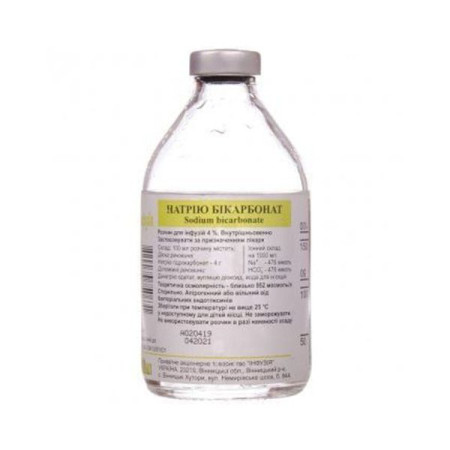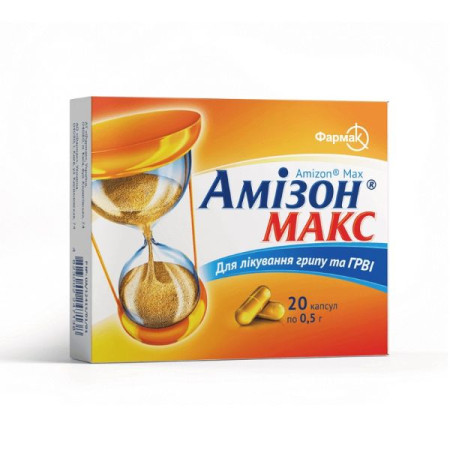Lisobact Complete oromucosal spray 30 ml

Instructions for use Lisobact Complete oromucosal spray 30 ml
Composition
active ingredients: lysozyme hydrochloride, cetylpyridinium chloride, lidocaine hydrochloride
1 ml of solution contains lysozyme hydrochloride – 20.0 mg, which corresponds to
800,000 OA FIP (International Pharmaceutical Federation activity units); cetylpyridinium chloride 1.5 mg, lidocaine hydrochloride 0.5 mg;
excipients: glycerin 85%, propylene glycol, methyl parahydroxybenzoate, propyl parahydroxybenzoate, peppermint flavor, sodium hydroxide, purified water
Dosage form
Oromucosal spray, solution.
Main physicochemical properties: colorless or light yellow solution with a peppermint aroma.
Pharmacotherapeutic group
Drugs used in throat diseases. Antiseptics. ATX code R02A A.
Pharmacological properties
Pharmacodynamics
Lysozyme is a mucopolysaccharide that is effective against gram-positive bacteria by converting insoluble cell wall polysaccharides into soluble mucopeptides. It is also effective against gram-negative bacteria, viruses, and fungi. Lysozyme exhibits local anti-inflammatory activity and increases the body's nonspecific resistance.
Cetylpyridinium is an antiseptic from the group of quaternary ammonium compounds. It acts as a cationic detergent. It penetrates the surface of the bacterial cell and binds to the cytoplasmic membrane of the microorganism. This causes disruption of the functioning and death of the microbial cell. Cetylpyridinium has a bactericidal effect on gram-positive and gram-negative bacteria. It has a disinfectant effect on mucous membranes.
Lidocaine is a local anesthetic of the amide type. Like other local anesthetics, lidocaine reduces the generation and conduction of nerve impulses by slowing depolarization. This occurs by blocking the large transient increase in the permeability of the cell membrane to sodium ions that leads to the initial depolarization of the membrane. Lidocaine also reduces the permeability of potassium and sodium ions to the resting neuron.
Pharmacokinetics
The drug is applied topically to the mucous membrane of the mouth and throat. When swallowing the solution with saliva, a small amount of it may enter the digestive system, and some may be absorbed from the mucous membranes of the mouth and throat.
Lidocaine rapidly penetrates the mucous membranes of the oral cavity, gastrointestinal tract and damaged skin. Absorption through intact skin is insignificant. Presystemic metabolism is extensive, and the bioavailability after oral administration is only about 35%. After absorption, lidocaine rapidly penetrates all body tissues. It passes through the placental and blood-brain barriers. Approximately 65% of it binds to plasma proteins. The half-life from blood plasma is 1.6 hours. Lidocaine is mainly metabolized in the liver. Any functional changes in the liver or in the hepatic blood flow have a significant effect on its pharmacokinetics and, accordingly, require changes in dosage. Metabolism in the liver is rapid. Approximately 90% of the dose is dealkylated to form monoethylglycinexylidide (MEGE) and toxic glycinexylidide (GE); both metabolites can potentiate the therapeutic and toxic effects of lidocaine. The metabolites and about 10% of unchanged lidocaine are excreted in the urine.
There are no published literature data on the pharmacokinetics of cetylpyridine. It is known that only 10-20% of quaternary ammonium compounds are absorbed, and the unabsorbed part is excreted unchanged in the feces.
Indication
Local treatment of acute inflammatory diseases of the mucous membrane of the mouth and throat, such as gingivitis, stomatitis, including aphthous.
As part of complex therapy for local treatment of pain, irritation and inflammation of the throat and larynx.
On the recommendation of a doctor in the pre- and postoperative periods for tonsillectomy, larynx surgery, injuries or abscesses, as well as after tooth extraction.
Contraindication
Hypersensitivity to lysozyme hydrochloride, cetylpyridinium chloride, lidocaine and other amide-type local anesthetics or to any of the excipients.
Hypersensitivity to chicken egg protein.
Children's age up to 6 years.
Interaction with other medicinal products and other types of interactions
Interactions of other drugs with lidocaine are theoretically possible, but such interactions will be clinically insignificant with topical use of LISOBACT COMPLETE SPRAY. Concomitant use with drugs that reduce hepatic blood flow (e.g. propranolol, cimetidine) may result in a decrease in lidocaine clearance. Long-term use with drugs metabolized by microsomal enzymes (e.g. phenytoin, barbiturates) may require a change in the dosage of lidocaine. The cardiodepressive effect of lidocaine enhances the effect of beta-blockers and other antiarrhythmic drugs (e.g. mexiletine).
LISOBACT COMPLETE SPRAY should not be used simultaneously with other local antiseptics for the oral cavity and/or throat.
Application features
In order to prevent disruption of the normal microflora of the oral cavity, the drug should not be used for more than 5 days.
If the symptoms of the disease do not disappear within 5 days and/or the elevated body temperature persists, you should consult a doctor.
LISOBACT COMPLETE SPRAY should be used strictly as needed to relieve existing pain and irritation.
Do not use in patients with a history of allergy. If symptoms suggestive of a hypersensitivity reaction occur, discontinue use and consult a physician.
During treatment with LISOBACT COMPLETE SPRAY, serious acute allergic reactions (hypersensitivity) such as urticaria, angioedema (including respiratory tract), bronchospasm, circulatory vascular complications and anaphylactic shock may occur. There have also been reports of isolated cases of skin reactions such as erythema multiforme and Stevens-Johnson syndrome.
Some of these serious reactions can be life-threatening.
The porphyrogenic activity of lidocaine cannot be ruled out, therefore patients with acute porphyria should use the drug only in case of vital necessity.
Patients who have difficulty swallowing should not use the drug and should consult a doctor. When using local anesthetics for the mouth or throat, the development of local anesthesia may impair swallowing function and, thus, increase the risk of aspiration. In this regard, patients should be warned that it is not recommended to consume food and/or drinks within 1 hour after using the drug LISOBACT COMPLETE SPRAY. It is also necessary to avoid brushing your teeth and chewing gum for the period when the mouth and/or throat area is anesthetized.
Avoid contact with eyes. If this happens, rinse eyes with clean water or eyewash solution and hold eyelids open for at least 15 minutes.
Special precautions regarding excipients included in the medicinal product:
glycerin 85% may cause headache, gastrointestinal irritation, and diarrhea;
Propylene glycol can cause symptoms similar to those that occur when drinking alcohol;
Methyl parahydroxybenzoate and propyl parahydroxybenzoate can cause allergic reactions, and in some cases, bronchospasm.
LISOBACT COMPLETE SPRAY does not contain sugar, so it can be used by patients with diabetes.
Use during pregnancy or breastfeeding
Pregnancy.
Clinical experience with the drug on the fetus is insufficient. Therefore, as a precautionary measure, the drug is not recommended for use during pregnancy.
Breast-feeding.
Lidocaine passes into breast milk, but in very small amounts, so in general no effects on the infant are expected when the drug is used in therapeutic doses.
Since there is insufficient data on the excretion of cetylpyridinium chloride into breast milk, the use of the drug during breastfeeding is not recommended.
Ability to influence reaction speed when driving vehicles or other mechanisms
Data on exposure are not available.
Method of administration and doses
The medicine is recommended to be used individually.
Before using the spray for the first time, remove the plastic cap from the spray pump, put the applicator on the spray pump and press lightly. The applicator can move sideways and turn upwards at a right angle to the bottle, which ensures correct application of the spray. Before using for the first time, you must first press the spray pump several times until a uniform spray cloud forms. With your mouth wide open, direct the applicator towards the affected area and press the spray pump as many times as indicated in the dosage of the product. During the injection procedure, you must hold your breath. Do not swallow. After using the product, turn the applicator down to block the spray pump in order to avoid spraying the spray when accidentally pressed.
Dosage.
One press releases 0.20 ml of solution containing 4 mg lysozyme hydrochloride, 0.3 mg cetylpyridinium chloride and 0.1 mg lidocaine hydrochloride.
Adults and children aged 6 and over.
To obtain a single dose, press the spray 5 times. The procedure can be repeated 3-6 times a day with a minimum interval of 2 hours between doses.
Children
The medicine should not be used in children under 6 years of age.
Overdose
Extremely high blood concentrations of lidocaine may cause effects on the central nervous and/or cardiovascular systems. Early manifestations of CNS effects may include nervousness, dizziness, tinnitus, nystagmus, restlessness, agitation, paresthesias, blurred vision, nausea, vomiting, and tremor, which may progress to medullary depression, tonic or clonic convulsions. Cardiovascular depression may manifest as hypotension, myocardial depression, bradycardia, and even cardiac arrest.
Although the bioavailability of lidocaine is low, ingestion of 0.5 g or more may be sufficient to produce toxicity. CNS toxicity, convulsions, and death have been reported following oral administration of local anesthetics. For LISOBACT COMPLETE SPRAY, more than 1000 ml of the drug would be required to produce a dose at which toxicity would be expected.
Cetylpyridinium chloride may cause nausea and vomiting due to irritation of the gastrointestinal mucosa.
Treatment.
Treatment of lidocaine overdose is symptomatic and consists in ensuring adequate ventilation of the lungs and stopping convulsions. If necessary, oxygen ventilation is provided by assisted or controlled breathing. In the event of convulsions, thiopental, diazepam or succinylcholine should be used. Since succinylcholine can cause respiratory arrest, it should be used only if the physician has the opportunity to perform endotracheal intubation and monitor the condition of a completely immobilized patient. In the event of ventricular fibrillation or cardiac arrest, effective cardiovascular resuscitation should be performed. Adrenaline (in the absence of effect - in repeated doses) and sodium bicarbonate should be used as soon as possible.
Side effects
Immune system disorders: allergic reactions1 (anaphylactic shock, anaphylactic reactions, angioedema). Allergic reactions including allergic oedema, skin rash, urticaria, bronchospasm, circulatory complications.
1 In extremely rare cases, the use of local anesthetics has been associated with allergic reactions. Hypersensitivity reactions to lidocaine hydrochloride following topical administration have been reported as localized edema with mild difficulty breathing or generalized rash.
Skin and subcutaneous tissue disorders: erythema multiforme and Stevens-Johnson syndrome.
On the part of the gastrointestinal tract: irritation of the oral mucosa, which is mainly associated with exceeding the recommended doses.
Medical professionals, patients, pharmacists are asked to report any suspicion of adverse reactions or lack of therapeutic effect to the email address of the Bosnalejek d.d. representative office: office@bosnalijek.com.ua
Expiration date
3 years.
Storage conditions
Store at a temperature not exceeding 25 ° C. Do not freeze.
Keep out of reach of children.
Packaging
30 ml of solution in a dark glass bottle with a spray pump and applicator, 1 bottle in a cardboard box.
Vacation category
Without a prescription.
Producer
Bosnalek, PhD
Address
71000, Sarajevo, Jukiceva, 53, Bosnia and Herzegovina.
There are no reviews for this product.
There are no reviews for this product, be the first to leave your review.
No questions about this product, be the first and ask your question.













